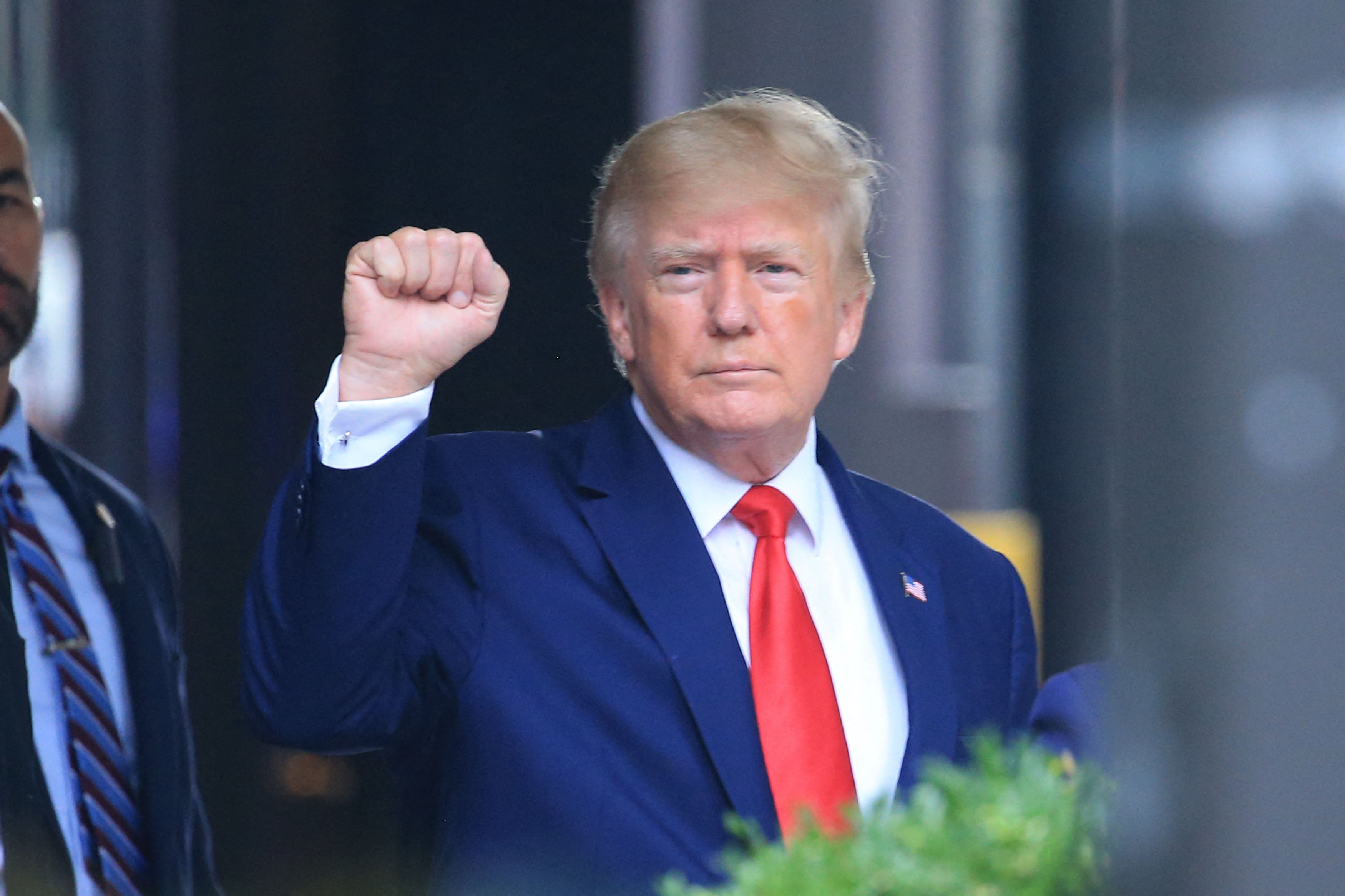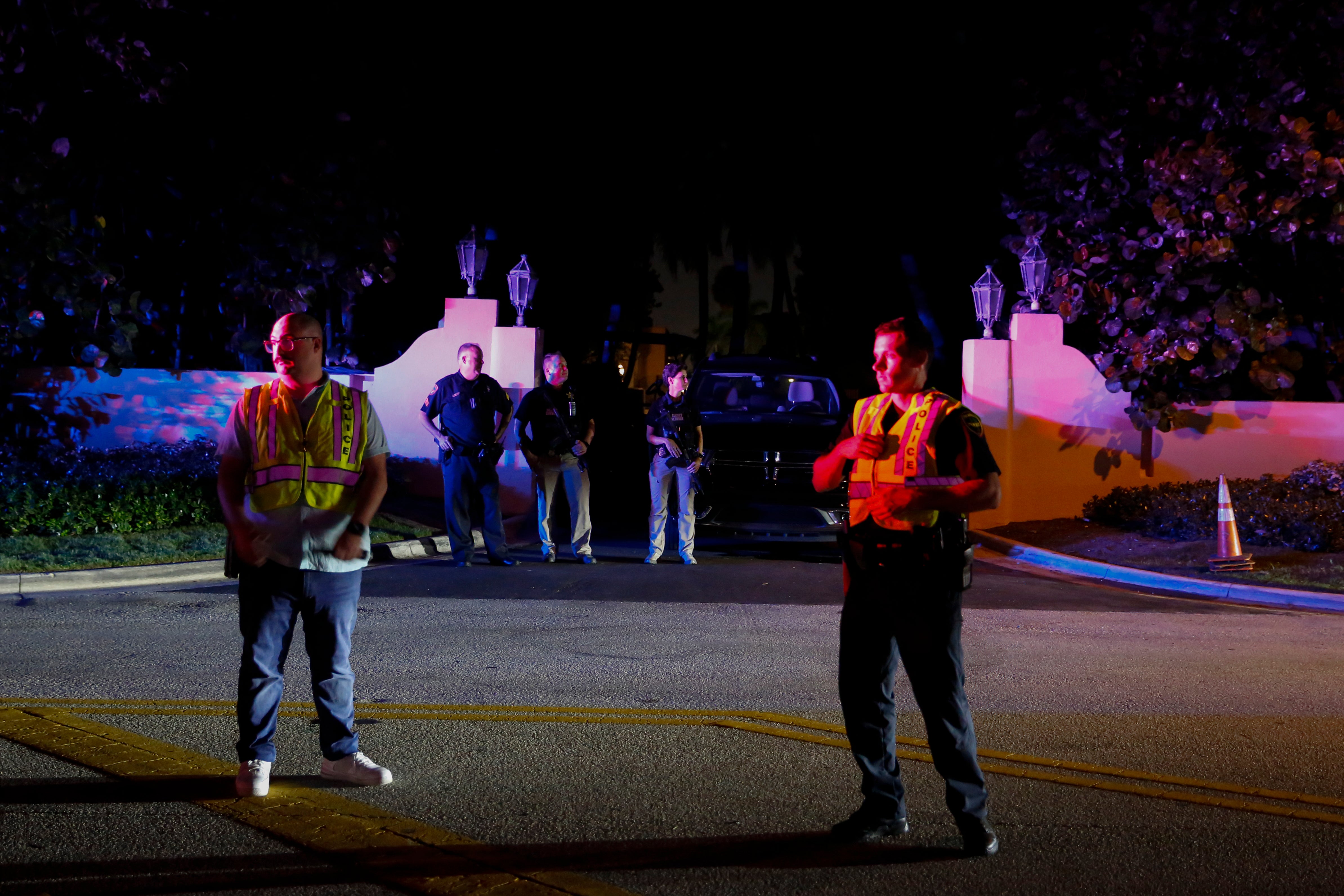Trump’s head-spinning excuses for Mar-a-Lago documents are already piling up. Insiders warn that’s bad news for him
From accusations of ‘planted evidence’ to claims of blanket declassification, the former president has ticked through a number of excuses for holding onto the classified documents
Your support helps us to tell the story
From reproductive rights to climate change to Big Tech, The Independent is on the ground when the story is developing. Whether it's investigating the financials of Elon Musk's pro-Trump PAC or producing our latest documentary, 'The A Word', which shines a light on the American women fighting for reproductive rights, we know how important it is to parse out the facts from the messaging.
At such a critical moment in US history, we need reporters on the ground. Your donation allows us to keep sending journalists to speak to both sides of the story.
The Independent is trusted by Americans across the entire political spectrum. And unlike many other quality news outlets, we choose not to lock Americans out of our reporting and analysis with paywalls. We believe quality journalism should be available to everyone, paid for by those who can afford it.
Your support makes all the difference.The shifting litany of excuses and explanations that former president Donald Trump and his allies have offered to justify the presence of highly classified documents at his Palm Beach, Florida, home reflect his inability to understand the legal peril he could be facing, according to current and former associates of the ex-president.
Mr Trump was the person who made public the fact that agents of the Federal Bureau of Investigation had executed a search warrant at Mar-a-Lago, the 1920s-era mansion turned private club where he has maintained his primary home and post-presidential office since his term ended in January 2021. In a statement released by his political action committee late on 8 August, he claimed to have been “working and cooperating with the relevant Government agencies” before the search, which had been authorised by a federal magistrate judge pursuant to a long-running dispute over records Mr Trump had continued to keep at his home even though they remained the property of the government he once led.
Trump suggests evidence was ‘planted’
The next day, Mr Trump took to his own social media platform, Truth Social, to claim agents may have been “planting” evidence. Those unfounded accusations came just before The Washington Post and The New York Times reported that the documents sought by the agents who searched his property may have contained highly classified nuclear secrets, at which point the ex-president denied any such documents had been at his home and called the report a “hoax”.
Trumpworld’s next argument: Trump simply declassified the documents
The ex-president’s story began changing again on Friday after the magistrate judge who’d issued the search warrant for Mr Trump’s property ordered it unsealed, making public a receipt which detailed the FBI’s recovery of 11 boxes containing information classified at levels of secrecy up to “sensitive compartmented information”.
That evening, conservative journalist John Solomon (who is also one of Mr Trump’s official representatives to the National Archives and Records Administration) told Fox News the ex-president had a “standing order” to declassify any material he took to the White House residence or to his home in Florida.
Trump tries to invoke attorney-client privilege
After that theory was met with ridicule from legal experts, Mr Trump and his allies then began claiming the 11 boxes seized by the FBI contained material protected by attorney-client privilege. And by Monday evening, one week after the search of his home and office, Mr Trump was accusing FBI agents of “stealing” his passports (which by law belong to the US government) and demanding the return of “his” property.
One of Mr Trump’s former national security advisers, Ambassador John Bolton, said the talk of a standing declassification order is “almost certainly a lie”.
Mr Bolton told the Times he was “never briefed on any such order, procedure, policy” during his time in the Trump White House.
"When somebody begins to concoct lies like this, it shows a real level of desperation,” he added.
A familiar pattern emerges — but with important differences
The changing explanations and rapid-fire release of new theories and explanations for what was at Mar-a-Lago have followed a similar pattern to other scandals from Mr Trump’s time in the White House, most notably the series of events which led to his first impeachment.
Each time that information emerged which contradicted the defence he or his representatives had previously offered, Mr Trump would offer a new exculpatory excuse, all the while casting any inquiry into his behaviour as illegitimate and politically motivated.

But Trump confidantes who spoke to The Independent on condition of anonymity say there are important differences between this latest dispute with the Department of Justice and Mr Trump’s previous brushes with accountability, such as his first impeachment and the Justice Department probe into his 2016 campaign’s alleged links to the Russian government. They suggested that the rapidly changing excuses emanating from Trumpworld reflects his inner circle’s lack of capacity to handle what could end up being the first-ever criminal indictment of a former president.
For one, Mr Trump is no longer surrounded by the top-tier lawyers who represented him throughout his presidency as both government lawyers and as his personal attorneys.
During the DoJ’s Russia probe and first impeachment trial, Mr Trump’s legal representation included top legal practitioners such as Emmett Flood, a veteran Washington, DC attorney who had advised then-president Bill Clinton during his own impeachmen; former Hogan Lovells partner Ty Cobb; and veteran Supreme Court litigator Jay Sekulow. When the FBI searched his property last week, the attorney who accepted the search warrant and signed for the receipt of property seized by the FBI was Christina Bobb, an ex-US Marine judge-advocate who worked as an anchor for right-wing One America News before joining Mr Trump’s legal team.
“This [the series of excuses and claims of planted evidence] is for the court of public opinion, it has nothing to do with his legal situation,” said one former Trump campaign and administration official.
“He's not even lined up with the best legal team to defend him in this situation. He's run through all the attorneys who would take one for him,” they said.
Steven Groves, a Heritage Foundation fellow who served in the Trump-era White House Counsel’s office before working as a White House spokesperson during Mr Trump’s first impeachment, told The Independent the ever-shifting explanations for Mr Trump’s allegedly classified document cache could be a sign that the ex-president’s legal team is not serving him well — or a sign that Mr Trump’s lawyers are simply doing what they are told regardless of whether it is a good idea or not.
“If this is all the legal team’s doing, and they're just … coming up with new reactions to new developments, then of course they're not serving his interests,” he said. “[But] if these incidents are happening, and they sit down with [Mr Trump] and the former president says ‘no, we'll go out and say this,’ then the legal team is just doing what [Mr Trump] is telling them to go say”.
Mr Trump may not fully understand how much trouble he could be in
Another ex-White House aide who still has regular contact with Mr Trump and people in his inner circle told The Independent that the ex-president is to some extent in denial about his possible legal exposure.
According to the search warrant unsealed by the court last week, the ex-president is under investigation for violating two sections of the US code known as the Espionage Act, which make it a crime to mishandle information related to national defence. The warrant also listed a separate section of the US criminal code which prohibits interfering with ongoing investigations. All three carry significant penalties for violators, including prison terms as long as 10 years. And in the case of the Espionage Act, prosecutors could charge the ex-president separately for each classified document found at his home.

But the Trumpworld confidante said the people surrounding Mr Trump are largely divided into two camps — those who understand how serious it is for the ex-president to have had top secret documents in a storage room at Mar-a-Lago, and those who believe that the Justice Department would not dare to prosecute President Joe Biden’s likely opponent in the 2024 election, with Mr Trump in the latter group.
“He doesn’t think Garland has the balls to truly take him on,” they said. “And the people who think this is a political problem are drowning out the ones who actually understand how this stuff works.”
Mr Groves, the former White House spokesman and attorney, said an indictment of Mr Trump would raise all manner of untested legal questions about what powers a president has to classify and declassify material, and how such powers are wielded.
He told The Independent that in his view, Mr Trump’s claim to have declassified the alleged documents at issue would carry significant weight. But he nonetheless thinks the ex-president needs to upgrade his legal representation.
“He can't have you know, this lawyer from this boutique firm, and that lawyer from this boutique firm, he needs a full law firm, to be hired on to conduct his defence,” he said. “if the FBI is raiding your house, hire law firms, don't hire these no names. You need to throw scores of associates at things if you're if you're going to really defend yourself properly”.




Join our commenting forum
Join thought-provoking conversations, follow other Independent readers and see their replies
Comments